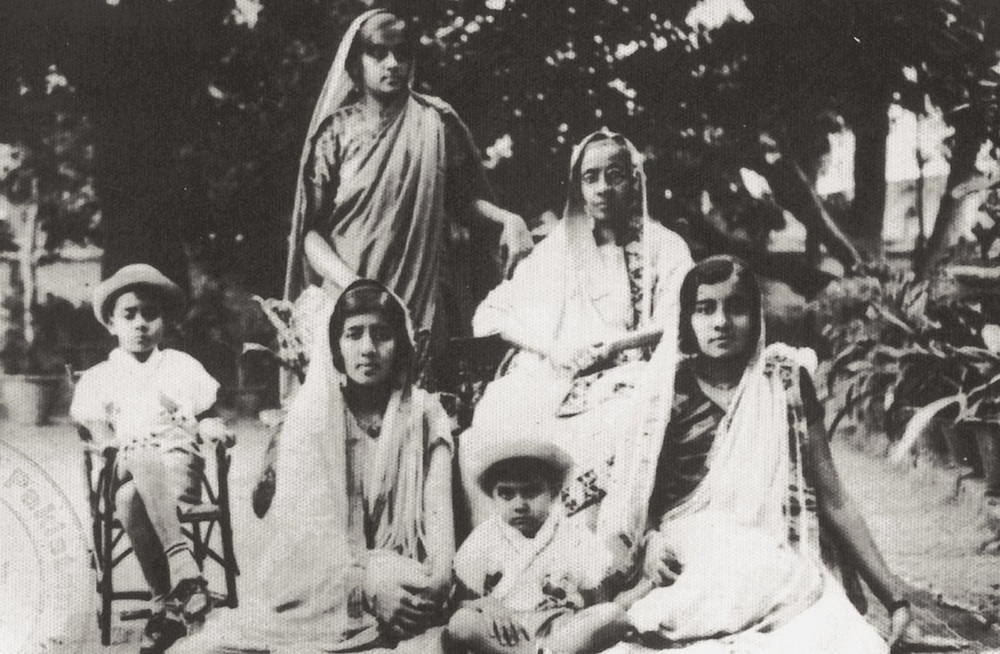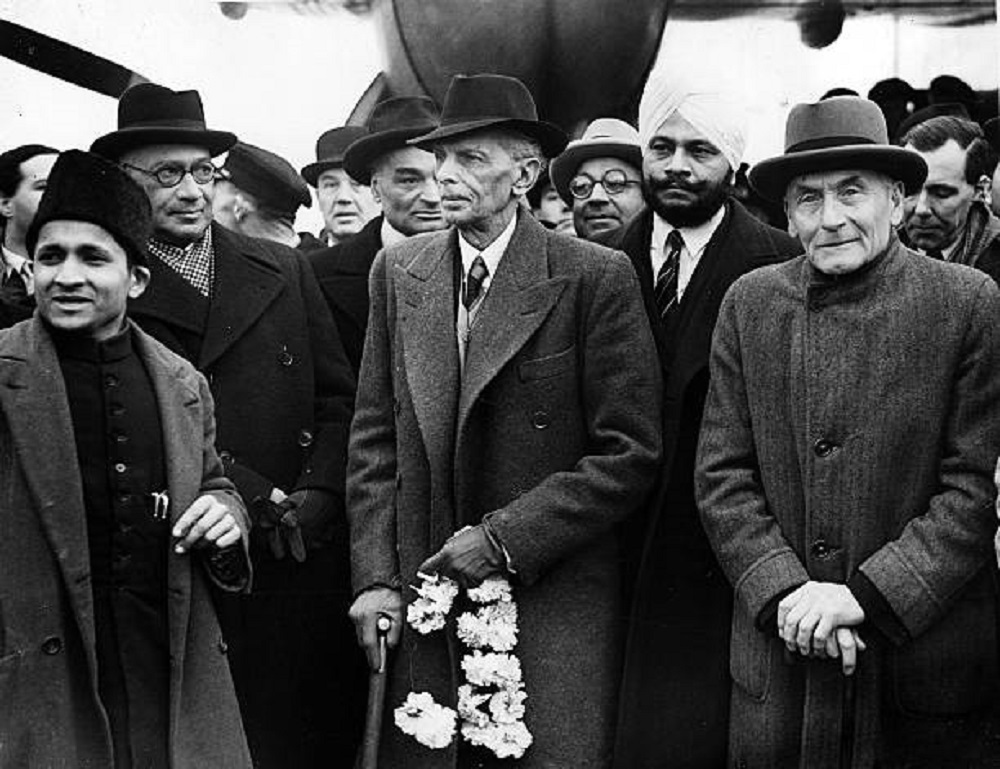Written by: Dr. Dushka H. Saiyid
Posted on: December 24, 2024 |  | 中文
| 中文
Quaid-e-Azam Muhammad Ali Jinnah
There are three characteristics of the Quaid-i-Azam Mohammed Ali Jinnah’s that stand out: his struggle was constitutional and he believed in the rule of law; his struggle was peaceful and his vehicle was the Muslim League; he was non-sectarian, hence his first foreign minister was an Ahmadi, Sir Zafarullah Khan; he refused to be blackmailed by the obscurantist mullahs, whether it was over the passing of the Child Marriage Bill of 1929 or Maulana Maududi’s opposition to the creation of Pakistan. The Majlis-e-Ahrar-e-Islam, tried to blackmail the Quaid into abandoning the movement for Pakistan, but with no success.

A group photograph of Quaid-i-Azam Mohammad Ali Jinnah’s siblings. Front row, from left to right: Fatima Jinnah, Bunde Ali Jinnah and Shirin Jinnah; back row, from left to right: Ahmed Ali Jinnah, Maryam Jinnah and Rehmat Jinnah. | Photo: Pioneers of Pakistan: Jinnah & Iqbal published by the ISPR
Mian Mohammed Shahnawaz, the lesser known of the couple, because of the role Jahanara Shahnawaz played in the Pakistan movement, played a lead role in the passing of the Child Marriage Restraint Act of September, 1929. Mian Mohammed Shahnawaz was also a member of the Age of Consent Committee. The Quaid famously said, “But, Sir, I make bold to say that if my constituency is so backward as to disapprove of a measure like this, then I say the clearest duty on my part would be to say to my constituency, ‘You had better ask somebody else to represent you’.” Such were the convictions of his beliefs that he declared: …if we are going to allow ourselves to be influenced by the public opinion that can be created in the name of religion when we know that religion has nothing whatever to do with the matter, I think we must have the courage to say, ‘No, we are not going to be frightened by that’. What repeatedly stands out about the greatness of the Quaid is his ability to stick to his principles and not be blackmailed by obscurantist, who have only gained ascendancy since the inception of Pakistan.
One of the greatest failures of the Liaquat Ali Khan’s rule was the inability to retain the services of Jogendranath Mandal. He was a leader of the Dalits, but resigned and went back to India, citing the anti-Dalit bias in Pakistan’s administration. He had served as the Minister of Law and Labour in Liaquat Ali Khan’s cabinet, but Mandal submitted his resignation to Liaquat. It was another instance of the failure of Liaquat’s administration to take action against the rioters who had perpetrated atrocities against the Dalits.

(L to R) Mr Jinnah, Liaquat Ali Khan, Sardar Baldev Singh and Lord Pethick-Lawrence arrive in London in December 1946 (from Getty Images)
Quaid-i-Azam Mohammed Ali Jinnah piloted the Shariat Bill in the Central Legislature, which was opposed by the landed gentry of the Punjab. One of the key opponents of the bill was Sir Umar Hayat Khan Tiwana, who wanted a bill passed for the legal impartibility of his estate. They wanted to retain the customary law because they did not want their land divided between men and women, and were happy to fob off their daughters with a rich dowry. The Quaid-i-Azam Muhammad Ali Jinnah said, “the principle underlying this Bill is to secure to the female heirs their due share according to Mohammadan Law. According to the customs and usages that have prevailed, the position of the female heirs has been very precarious. If a man dies, his widow is only entitled to maintenance. …when a son or a male heir succeeds to a large estate, he tells the widow that Rs 100/ is quite enough for her, although it may be an estate of ten or twenty lakhs.” The Shariat gave Muslim women fixed shares in property and spelt out their rights clearly, and unlike under customary law, her ownership of property was absolute.
Pakistan seems to be drifting into a wilderness of lawlessness, where there is no sanctity for the right to life, liberty and free expression. Where arbitrary arrests have become a common occurrence and “missing persons”, a common occurrence, particularly in Balochistan.
May the Almighty guide our rulers to wisdom and restraint, ameen!
You may also like: